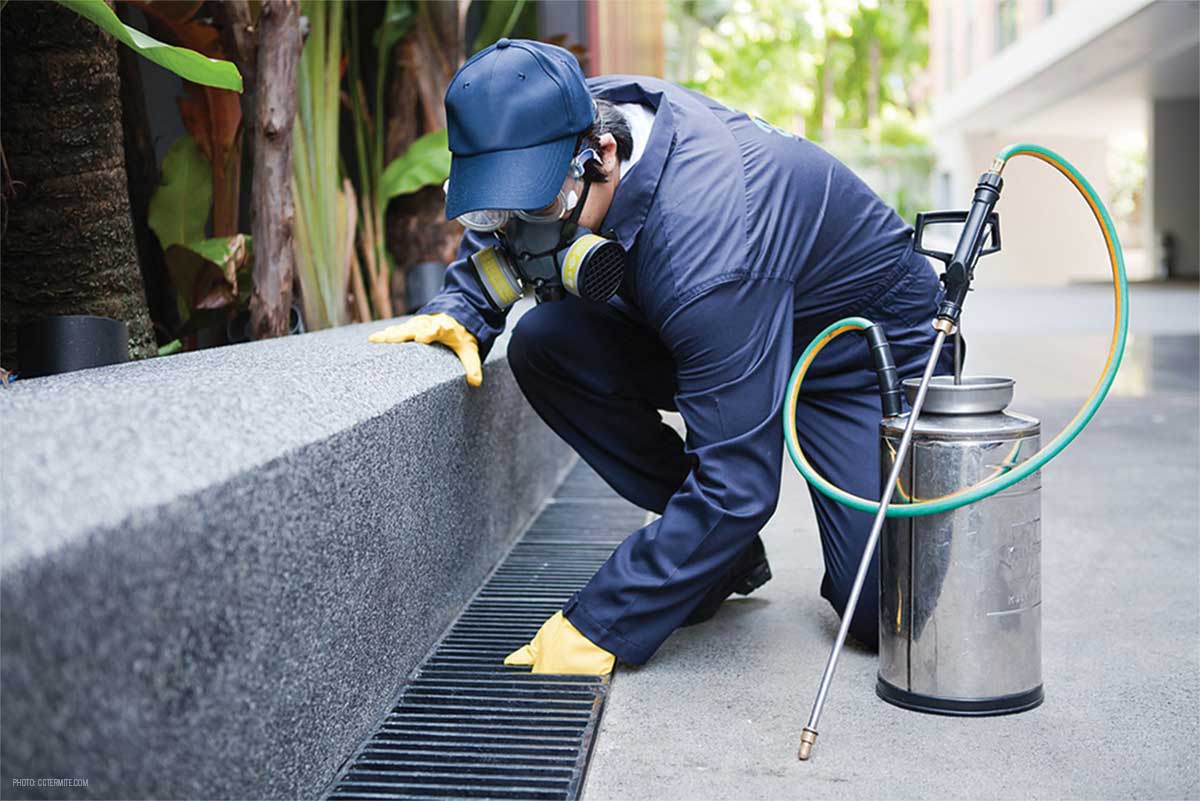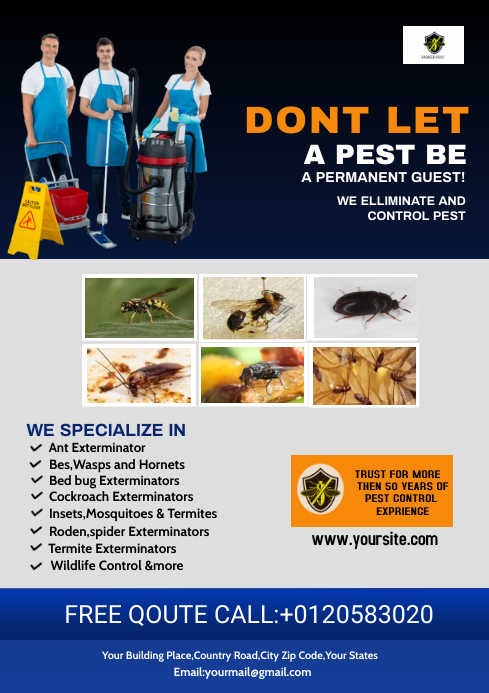Budget Friendly Pest Control Auckland Specialists: Keep Your Residential Or Commercial Property Safe
Budget Friendly Pest Control Auckland Specialists: Keep Your Residential Or Commercial Property Safe
Blog Article
Comprehending Different Kinds Of Parasite Control Approaches and Their Performance
The management of pests is a vital aspect of maintaining the health and wellness and integrity of various atmospheres, from agricultural fields to residential homes. When considering insect control approaches, it is necessary to comprehend the diverse strategies available and their differing levels of effectiveness. From chemical interventions to biological solutions, each method provides unique advantages and restrictions. By discovering the subtleties of these bug control methods, a thorough understanding of just how to deal with pest problems can be established.
Chemical Parasite Control Approaches
Chemical parasite control approaches play a crucial duty in successfully taking care of and eliminating pest problems in different atmospheres. These techniques involve making use of chemical materials to get rid of or deter parasites such as insects, weeds, and rodents. One of the key advantages of chemical bug control is its capacity to offer fast and targeted services to pest issues. By making use of details chemicals that are made to target certain parasites, this method can aid prevent damage to plants, structures, and human wellness.
Nevertheless, it is important to think about the potential dangers and downsides connected with chemical parasite control approaches. Overreliance on chemicals can lead to the advancement of chemical resistance in insects, making them tougher to regulate in the long run. In addition, using certain chemicals can have harmful results on non-target microorganisms, the atmosphere, and human health if not applied correctly.

Biological Pest Control Methods
Making use of natural killers and virus to manage insect populations effectively, organic parasite control methods provide a lasting and environmentally friendly method to pest administration. By advertising the task or introducing of organisms that normally take advantage of or infect pests, such as ladybugs for aphid control or particular bacteria for caterpillar problems, organic control can aid maintain insect populaces at manageable levels without the demand for artificial chemicals. This method is particularly advantageous for organic farming methods, as it prevents using possibly dangerous compounds while preserving plant wellness.

Physical Bug Control Techniques
While biological bug control techniques concentrate on utilizing natural predators and pathogens, physical bug control methods utilize mechanical and physical barriers to take care of insect populaces. These approaches are usually thought about eco-friendly as they decrease making use of chemicals. Physical bug control includes strategies such as capturing, using obstacles like screens or nets, and literally getting rid of pests from the location.
Catches are commonly utilized in physical pest control to capture and remove bugs like rodents and insects. Another physical approach is the use of obstacles such as fences, displays, or webs to prevent bugs from going into or infesting specific areas.
All-natural Parasite Control Methods
Incorporating plant-based repellents and all-natural killers is an essential approach in carrying out effective natural parasite control methods. By urging the visibility of advantageous bugs like ladybugs, lacewings, or predacious termites, garden enthusiasts can normally control pest populations. These killers prey on typical garden bugs such as termites, aphids, and caterpillars, aiding to maintain a well balanced environment without the need for chemical treatments.

Furthermore, applying social find more information practices such as crop rotation, friend growing, and maintaining appropriate plant health can additionally boost the efficiency of natural insect control techniques. These methods not only assist in stopping pest problems however also promote biodiversity and general environment resilience. By incorporating these natural approaches, individuals can efficiently take care of insects while reducing ecological impact.
Integrated Pest Management (IPM) Technique
Applying an Integrated Insect Management (IPM) strategy is vital for effectively controlling bug populations while reducing dependence on chemical pesticides. IPM address is a sustainable and extensive method that integrates different insect control approaches to achieve lasting options. This technique concentrates on control, surveillance, and prevention to attend to parasite concerns in an environmentally pleasant way.
IPM integrates biological, social, physical, and mechanical strategies with the minimal and critical use of chemicals when required. By highlighting aggressive actions such as environment modification, biological control, and exemption, IPM aims to reduce insect populaces and their effect on the ecological community. Regular tracking is vital in IPM to evaluate insect degrees accurately and identify one of the most appropriate control approaches.
Among the essential benefits of IPM is its capacity to decrease the risks related to excessive chemical usage, such as environmental contamination and damage to non-target microorganisms. Furthermore, IPM advertises a much more holistic strategy to pest monitoring by taking into consideration the overall environment dynamics. Generally, the IPM approach uses a lasting and reliable option for insect control while advertising ecological duty.
Conclusion
In conclusion, recognizing the various kinds of insect control approaches and their effectiveness is important in effectively taking care of parasite infestations. Integrated Pest Administration (IPM) approach, which integrates numerous approaches for lasting insect control, is increasingly being recognized as a eco friendly and holistic remedy.
Chemical More Bonuses pest control methods play a crucial duty in successfully managing and eradicating pest problems in numerous environments.Using natural predators and pathogens to manage parasite populations effectively, organic pest control approaches use a sustainable and environment-friendly strategy to pest management. By advertising the task or presenting of organisms that naturally prey on or infect parasites, such as ladybugs for aphid control or particular microorganisms for caterpillar infestations, biological control can aid keep bug populaces at manageable levels without the demand for artificial chemicals.While organic insect control techniques concentrate on harnessing all-natural predators and pathogens, physical bug control methods make use of mechanical and physical barriers to take care of bug populaces. Integrated Insect Monitoring (IPM) technique, which combines different approaches for sustainable pest control, is significantly being recognized as a ecologically pleasant and alternative service.
Report this page